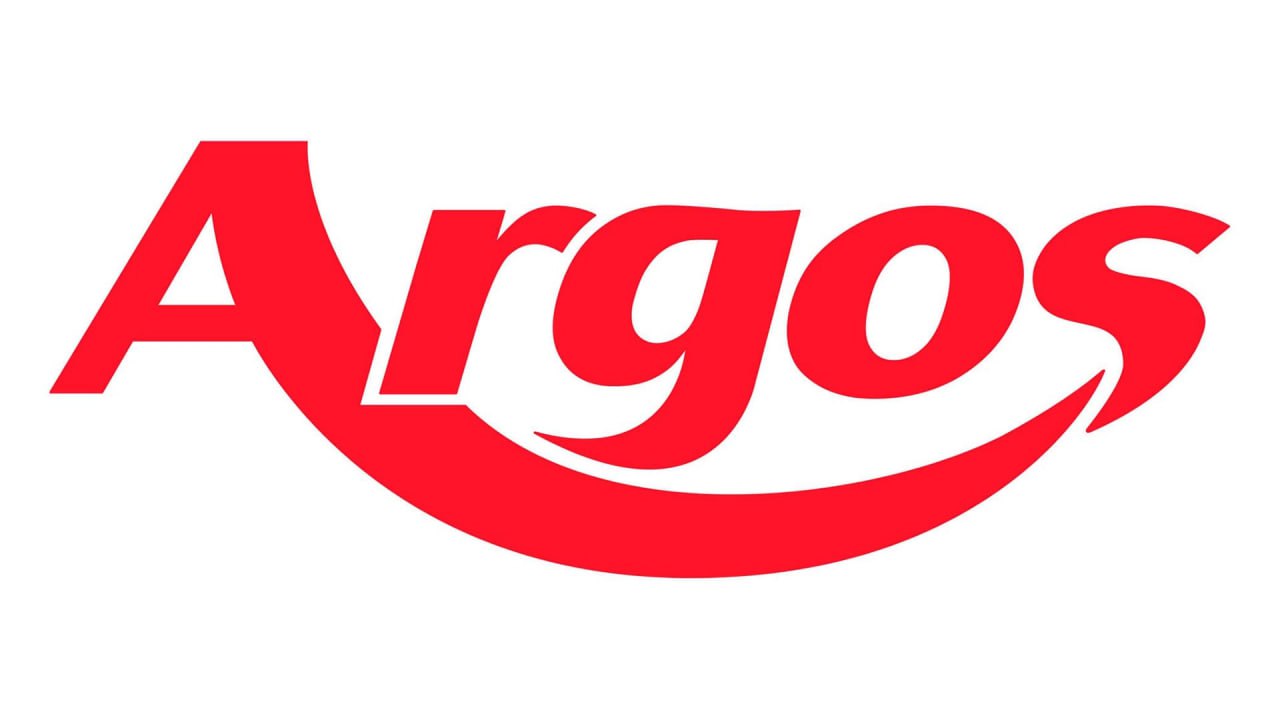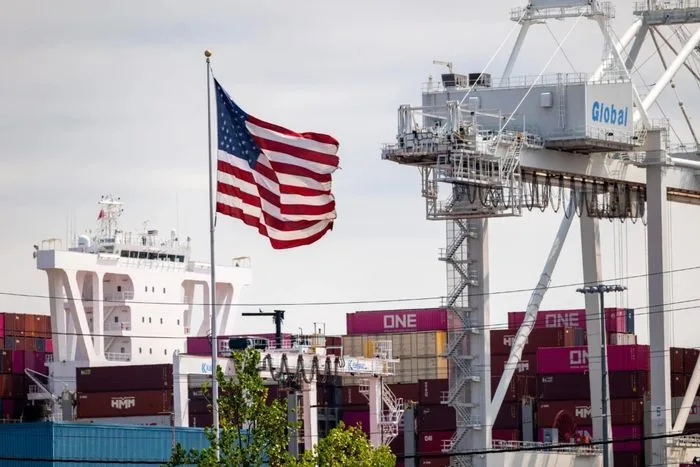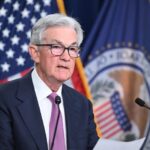By Tom Ozimek
Revenue from President Donald Trump’s tariffs hit a fresh high of nearly $30 billion in August, with Treasury Secretary Scott Bessent predicting even larger inflows ahead and forecasting that annual collections could top half a trillion dollars and help bring down the deficit.
The Treasury’s latest Daily Statement showed $29.99 billion in tariff revenue as of Aug. 25, with a single-day haul of almost $22.5 billion on Aug. 22. “The best part: no consumer price inflation,” Bessent wrote on X, noting that household goods prices have risen by just 0.7 percent annualized since April. The August surge follows back-to-back records earlier this summer, with July bringing in $28 billion and June $27 billion.
Bessent told Cabinet officials this week that revenues are now running far above expectations and could soon approach “well over half a trillion, maybe towards the $1 trillion number,” a stream he said is already making “a meaningful dent in the budget deficit.” He contrasted the current spending performance with that of the prior administration, saying that the average budget deficit under Trump’s second term is 26 percent lower than during the last 12 months of President Joe Biden’s time in the White House.
“So, Mr. President, your return to the White House marked the return of the American worker. Thank you for reclaiming Labor Day for the American people,” Bessent said. “You’re growing the economy for everyone, especially the middle- and lower-income households who suffered disproportionately under the last administration.”
Economists broadly agree that Trump’s tariffs are reshaping trade and raising revenue, but they’re divided over how much of the cost will ultimately fall on consumers. Goldman Sachs estimates that U.S. consumers have so far absorbed about 22 percent of the costs but could be carrying two-thirds by year-end, which would push consumer inflation higher while easing the burden on businesses. That contrasts with the Trump administration’s stance that companies and foreign exporters will continue to shoulder most of the costs, keeping prices stable.
Major U.S. retailers say they have so far shielded customers by front-loading orders, diversifying supply chains, and delaying price hikes. Walmart CEO Doug McMillon told investors that the company avoided raising prices by ordering goods ahead of tariff deadlines but acknowledged that costs are climbing as new stock is replenished. Amazon, Costco, Target, and Home Depot executives offered similar warnings, saying margins are tightening and price increases may become unavoidable later this year. Best Buy cut its sales forecast in part on expectations of weaker demand for tariff-exposed electronics.
Bessent has argued that consumer prices remain stable despite the record tariff revenue inflows, pointing to official inflation data showing only modest pass-through from the levies. During the Aug. 26 Cabinet meeting, Bessent also highlighted a recent projection from the Congressional Budget Office (CBO), which estimated that Trump’s tariffs would shrink federal deficits by about $4 trillion over the next decade—$3.3 trillion from higher revenue and $700 billion from reduced interest costs. The CBO said customs duties this fiscal year alone could total roughly $200 billion—a much lower figure than Bessent’s projection—though it cautioned collections often lag several months behind implementation.
Vice President JD Vance touted the deficit-reducing aspect of the administration’s trade policies.
“People forget that we inherited the largest peacetime deficit in the history of the United States of America,” he said at the Cabinet meeting. “And now, because the president is not letting foreign countries take advantage of us, we’re collecting hundreds of billions of dollars, trillions of dollars over 10 years in tariffs from countries and companies that were formerly taking advantage of the American people.”
Trump recently threatened additional tariffs—this time on countries that refuse to eliminate digital regulations that he says treat American tech firms unfairly. The president warned in a recent Truth Social post that his administration would impose “substantial additional tariffs” on imports from those countries and restrict U.S. protected technology and chip exports, unless they withdraw their “discriminatory” digital taxes and regulations.
Several countries, especially in Europe, have imposed digital taxes on the revenues of firms such as Google, Meta, Apple, and Amazon—a dispute that has dogged successive U.S. administrations. On Aug. 21, Washington and Brussels issued a joint statement pledging to pursue a “reciprocal, fair, and balanced” trade framework. Both sides vowed to tackle “unjustified digital trade barriers” and maintain a ban on customs duties for electronic transmissions, and the EU agreed to forgo network usage fees.





